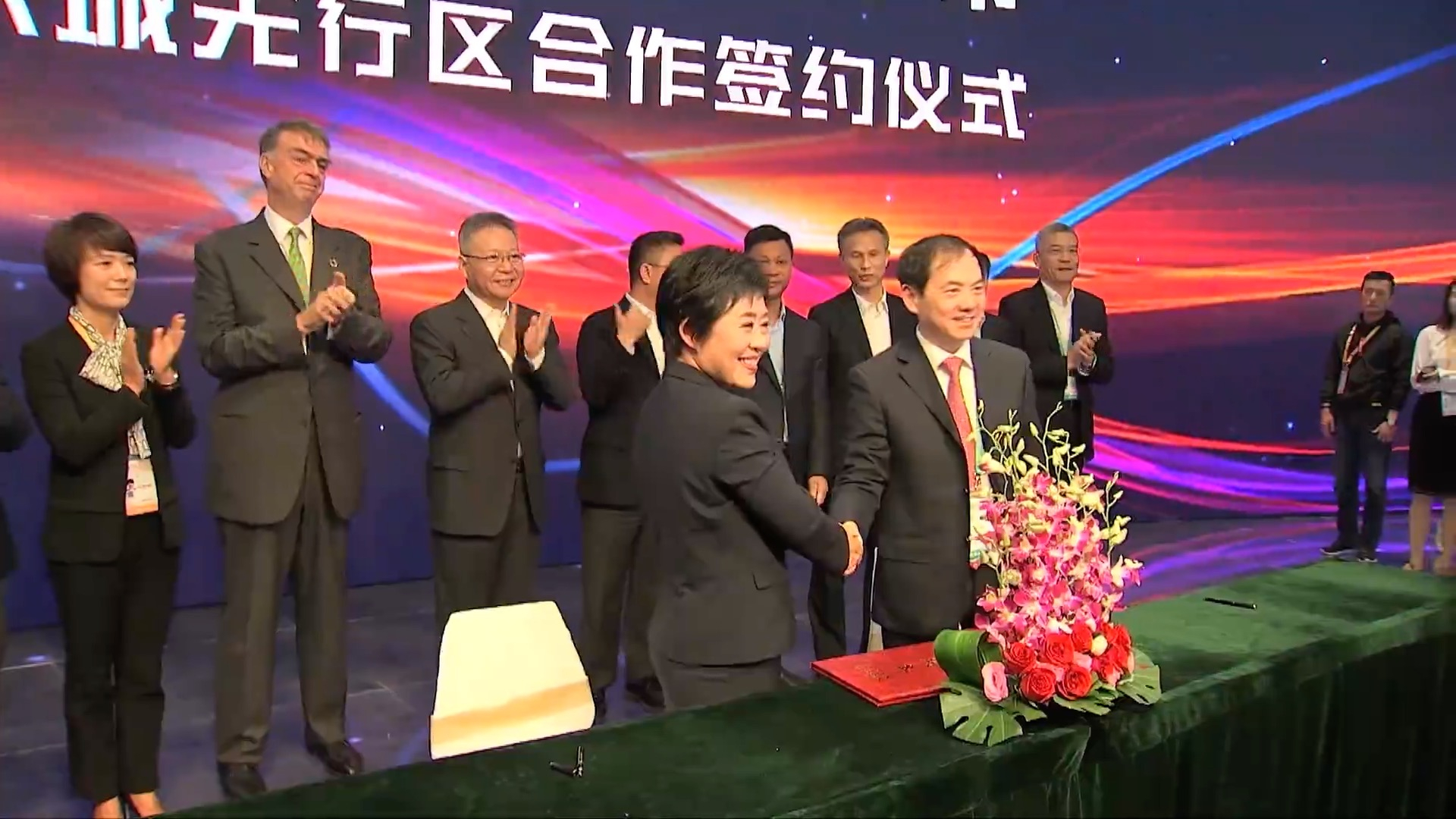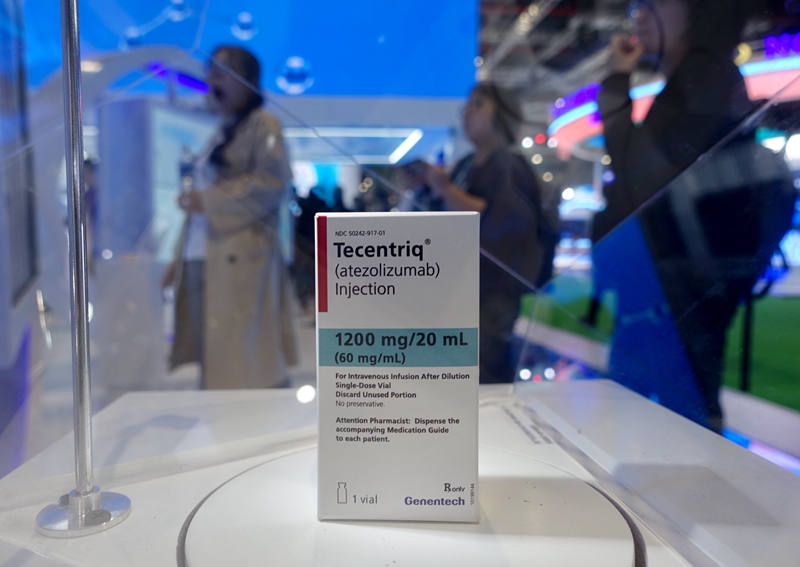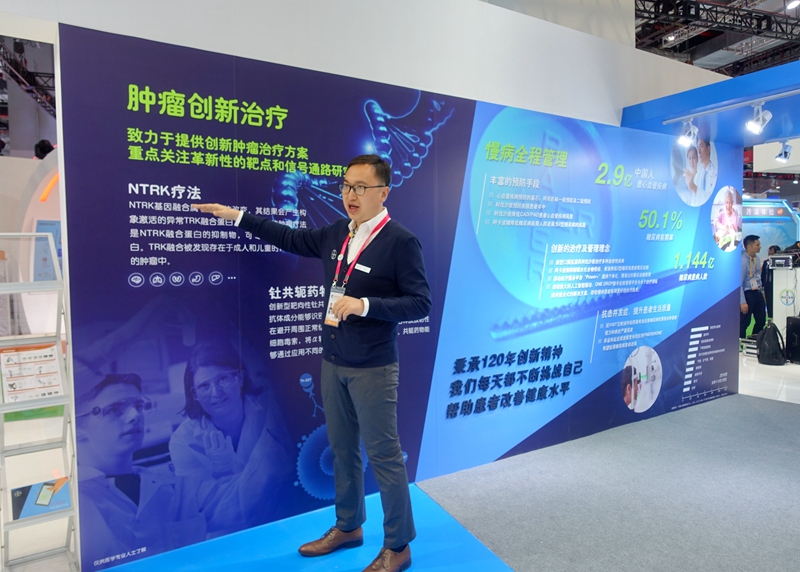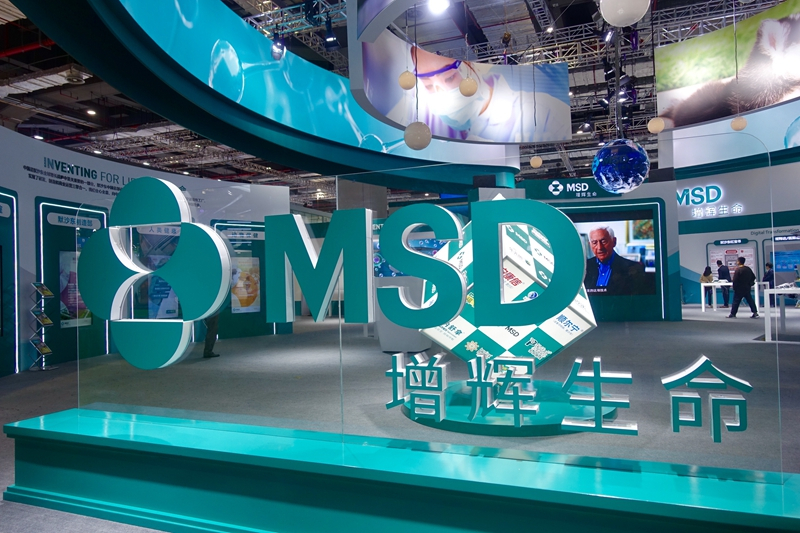02:38

New drugs, new medical solutions and new cooperation deals are just some of the highlights at the Medical Equipment and Healthcare Product Hall at the second China International Import Expo (CIIE) in Shanghai. More than 300 enterprises are ready to showcase the future of the medical world.
Swiss pharmaceutical giant Roche announced strategic cooperation with Hainan Boao Lecheng International Medical Tourism Pilot Zone at the CIIE, saying it is allowed to conduct pre-market clinical trials of its new drugs at hospitals in the pilot zone. The news comes just a month after the company launched its third strategic global center in Shanghai, one with a total investment of 863 million yuan, or about 123 million U.S. dollars. The other two are based in Basel and San Francisco.
Andre Hoffmann, member of the founding family Hoffmann La Roche and vice chairman of the Board of Directors of Roche Holding Ltd, said that Roche was not just content with selling products to China, it hoped to conduct R&D and manufacture in China. "We want to be part of China's ecosystem. For that we need to innovate here, which allows us to use Chinese science to find new solutions for patients all over the world."

Roche's immunotherapy drug displayed at the 2nd CIIE. / CGTN Photo
Roche's immunotherapy drug displayed at the 2nd CIIE. / CGTN Photo
The company has brought its newest medicines for breast cancer, immunotherapy and influenza to the CIIE, including an immunotherapy drug called Tecentriq for treating certain types of cancers, such as liver and lung cancers. Another targeted therapy drug for breast cancer, Kadcyla, is expected to be approved in China in the first quarter of next year.

Bayer staff introduces the company's innovative cancer therapy at the 2nd CIIE. /CGTN Photo
Bayer staff introduces the company's innovative cancer therapy at the 2nd CIIE. /CGTN Photo
Moreover, German pharmaceutical firm Bayer is promoting its precision oncology therapy Vitrakvi (larotrectinib), a drug which targets solid tumors that have an NTRK gene fusion, regardless of the patient's age or tumor's location. The medicine was approved by the U.S. Food and Drug Administration (FDA) in November 2018 and European Union this September, and is under application for clinical trial in China.

MSD's booth at the 2nd CIIE / CGTN Photo
MSD's booth at the 2nd CIIE / CGTN Photo
Furthermore, it is the first time for the U.S. pharmaceutical company MSD, known as Merck in the United States and Canada, to attend the CIIE. The company is exhibiting its leading immunotherapy anti-body drug Keytruda (or Pembrolizumab), which has been approved for 15 different types of cancer by the U.S. FDA. In China, it was approved for the treatment of melanoma in 2018 and for lung cancer earlier this year as a result of the government's efforts to expedite the introduction of new and innovative drugs in China.
"It was in 2017 that we saw an explosion of healthcare reforms, and probably the key example of that was regulatory reform undertaken through NMPA. Through that reform we saw shortening of cycle time, new innovations in China, priority review and conditional approval. Because of these regulatory changes, we've seen products coming into the market at a more rapid pace," said Joseph Romanelli, president of MSD China. The company had nine new products approved in China in 2018. China is the second top market for MSD globally in terms of size and revenue, compared to its 30th place in 1996.
With wider market access and a better business environment for multinational pharmaceutical companies, China is trying to fill the pharmaceutical gap at the international level. Chinese patients are expected to get early treatment and healthcare services similar to patients elsewhere, thanks to the various measures the nation has taken to cut import taxes, shorten approval times and expand medical insurance coverage for more imported anti-cancer drugs. "As a doctor, I'm very happy that China's approval becomes faster. Previously there was a 10-year delay. Now we can enjoy simultaneous approvals with global data," said Professor Hu Xichun from Fudan University Shanghai Cancer Center.
(Lan Hao also contributed to the video.)